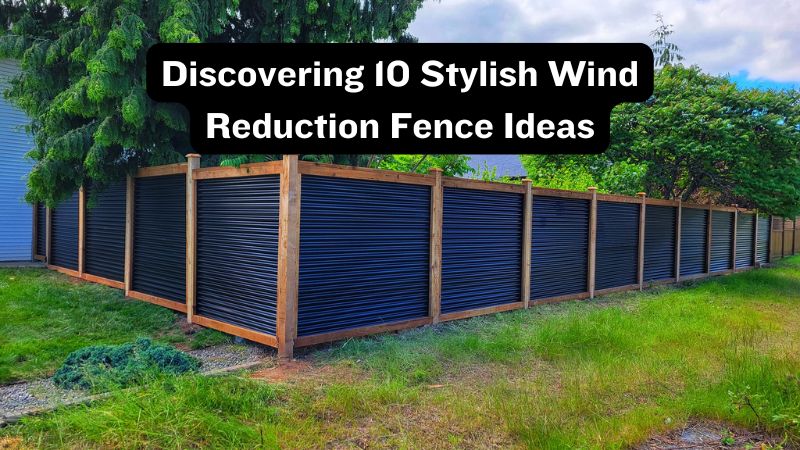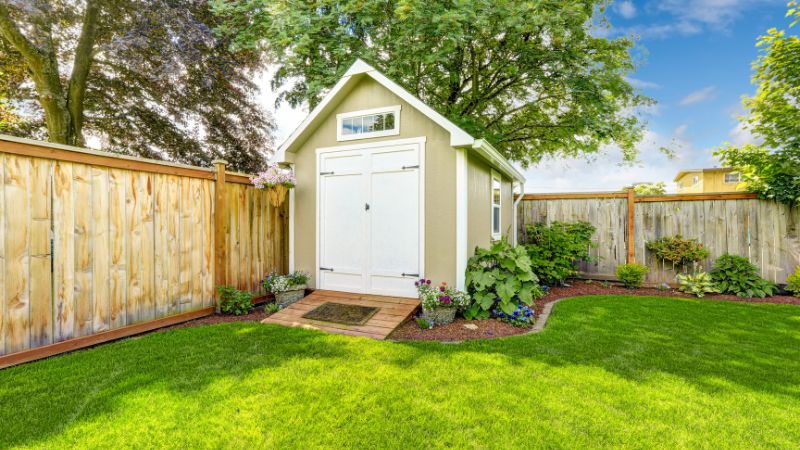Choosing the right fence contractor is crucial for ensuring your project is completed on time, within budget, and to your satisfaction. Whether you’re installing a privacy fence, a decorative design, or a security barrier, asking the right questions before hiring a contractor can save you time and money. From materials and permits to warranties and timelines, knowing what to ask can prevent potential issues down the road. In this blog, we’ll explore the 10 top questions you should ask your fence contractor to ensure a smooth process. Asking these questions will not only clarify expectations but also help you find a reliable professional who understands your vision. Keep reading to discover the key questions that will empower you to make an informed decision and get the results you desire.
10 Top Questions You Should Ask your Fence Contractor
1. What Types of Fencing Materials Do You Offer?

Understanding the materials your fence contractor provides is essential, as it directly impacts the durability, maintenance, and overall look of your fence. Common materials include wood, vinyl, aluminum, chain link, and composite. Each has its benefits and drawbacks. For example, wood offers a classic aesthetic but requires more maintenance, while vinyl is low-maintenance but may lack the natural look some homeowners desire. Be sure to ask which material suits your specific needs based on your property type, climate, and budget. Your contractor should also explain how long each material is expected to last and provide maintenance tips.
Also Read:- Things To Consider Before Installing A New Fence
2. Do You Handle Permits and Property Line Checks?
Before any fence installation begins, it’s crucial to ensure the project complies with local zoning laws and property line regulations. Some municipalities require permits, and installing a fence without one could result in fines or the need to dismantle the fence. Ask your contractor whether they will obtain the necessary permits and check the property lines to avoid legal disputes with neighbors. A professional contractor should be familiar with your area’s requirements and handle this on your behalf to ensure the project proceeds without unnecessary delays.
3. Can You Provide a Detailed Written Estimate?
A detailed written estimate is critical for preventing unexpected costs down the road. Ask your fence contractor for a clear breakdown of all expenses, including labor, materials, and any potential additional fees. This should include the cost of permits, disposal of old fencing (if applicable), and any other related charges. With a written estimate, you’ll have a better understanding of the total project cost, allowing you to budget accordingly. A professional contractor should have no issue providing a comprehensive quote and explaining any charges that might be unclear.
4. What is the Project Timeline?
Knowing the estimated timeline for your fence installation helps set expectations for completion and can prevent unnecessary delays. Ask your contractor how long they anticipate the project will take and whether factors like weather, supply issues, or other external factors could cause delays. Make sure to clarify how these potential setbacks will be handled and if there are provisions for them in the contract. Understanding the timeline also helps with planning around the construction process, especially if you have pets, children, or other concerns during the installation.
5. Do You Offer a Warranty on Materials and Workmanship?

A good fence contractor should offer a warranty to guarantee the quality of their work and the materials used. Ask about the specifics of their warranty policy, including what it covers and for how long. Some contractors may offer separate warranties for materials and workmanship, so it’s important to clarify both. A warranty provides peace of mind, ensuring that if something goes wrong with your fence shortly after installation, your contractor will fix the issue at no extra cost. Make sure to get the warranty in writing to avoid misunderstandings later.
6. What Experience Do You Have with Similar Projects?
Not all fence installations are the same. Depending on your specific requirements—such as a decorative fence, security barrier, or privacy wall—you’ll want a contractor with experience handling projects similar to yours. Ask how many years they’ve been in business and if they have references or a portfolio of past work that aligns with your needs. This will give you insight into their expertise and reliability. A contractor with relevant experience is more likely to understand the intricacies of your project, making it easier to deliver a high-quality result.
7. What Preparations Are Needed Before Installation?
Fence installation often requires preparation such as clearing the area, removing old fencing, or leveling the ground. Some contractors handle these tasks as part of their service, while others may charge extra or expect you to handle them. Clarifying who is responsible for site preparation ensures there are no surprises or delays on installation day. Additionally, ask if any special measures need to be taken to protect landscaping, irrigation systems, or other elements on your property during the process. Clear communication about preparation helps streamline the project.
8. Will You Contact Utilities Before Digging?
Any fencing project that involves digging poses the risk of damaging underground utilities like gas, water, or electrical lines. It’s critical that your contractor contacts local utility companies to mark these lines before installation begins. Ask your contractor if they will handle this process and whether there is an additional fee. Failing to check for underground utilities can result in dangerous situations, costly repairs, or even legal trouble. A responsible contractor will ensure all necessary safety precautions are taken, making the installation process safer for both parties.
9. How Will You Handle Unforeseen Issues?
Unforeseen issues can arise during any construction project, and it’s important to know how your contractor plans to address them. Whether it’s discovering underground obstructions, poor soil conditions, or unexpected weather delays, a professional contractor should have a plan in place for dealing with these challenges. Ask if they have experience handling similar setbacks and what steps they will take to ensure the project continues smoothly. Additionally, make sure you understand how these issues might impact the timeline and overall cost of the project.
Also Read:- Tips For Choosing The Right Fence For Your Home
10. Do You Have Proper Licensing and Insurance?

Finally, always ensure your fence contractor is fully licensed and insured. A licensed contractor has the necessary skills and qualifications to perform the job correctly, while insurance protects you from liability in case of accidents or property damage during the installation. Ask for proof of both licensing and insurance before signing any contract. Working with an unlicensed or uninsured contractor can leave you vulnerable to financial and legal issues if something goes wrong. A professional contractor will readily provide this information to ensure transparency and trust.
Conclusion
Hiring the right fence contractor starts with asking the right questions. By addressing essential topics like materials, permits, warranties, and timelines, you can avoid common pitfalls and ensure your project runs smoothly. A knowledgeable contractor will be happy to provide clear answers and guidance, giving you peace of mind throughout the process. Remember, your fence is a long-term investment in your property’s aesthetics and security, so it’s worth taking the time to find the best professional for the job.
FAQs
Why is it important to ask a fence contractor about permits?
Ensuring your contractor handles permits guarantees the project complies with local regulations and avoids fines.
What should I ask about fence material options?
Ask about different material options to understand durability, maintenance requirements, and how each suits your needs and budget.




